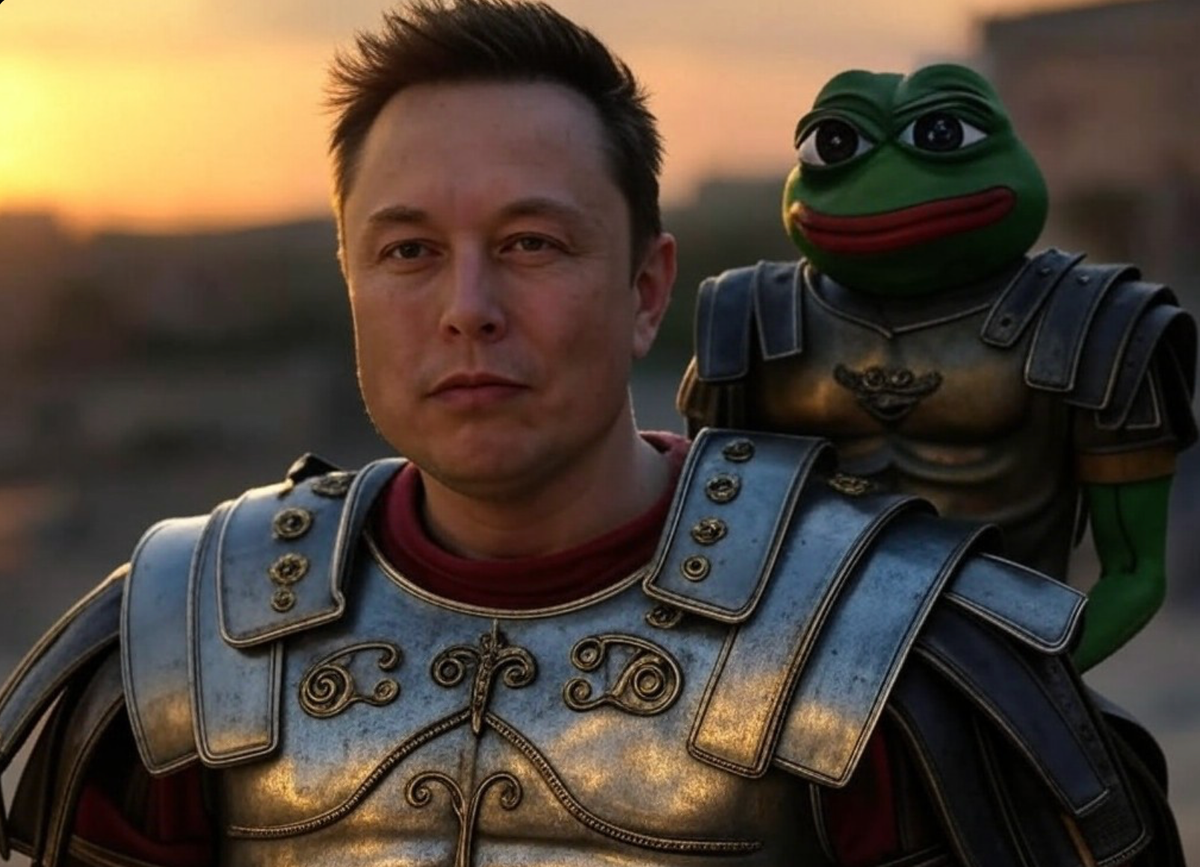Is Elon Musk trying to meme Gamergate back into existence?
The Edgelord-in-Chief has waded into yet another controversial issue and slammed the state of today's video games journalism industry.

As bizarre as it sounds, the rise of President Trump can be traced back to an online uprising from angry gamers who were upset by perceived bias within the video game media.
Now the "first buddy" Elon Musk appears to have taken further steps towards resurrecting the highly controversial Gamergate movement, which started in 2014 and fired the opening shots in an online culture war that eventually led to the Donald being "memed into existence".
Before we start, it's worth explaining a little bit about our editorial stance.
We don't take sides so this report is intended to be as neutral as possible. I worked at The Mirror, a left-wing tabloid, during Gamergate and was extremely online then as of now.
I remember the passion and anger this movement generated all too well. Very few people involved remained impartial - which was a shame, I think. Please take this article as an objective narration of the facts.
So...
What was Gamergate?
Depending on your perspective, Gamergate was either a grassroots protest against the influence of feminist, politically correct social justice warriors (SJWs) and a campaign for "ethics in video game journalism" or a harassment campaign led by internet trolls that targeted women in particular. The truth, of course, is that it was both.
It started with personal attacks on a journalist called Zoë Quinn after her ex-boyfriend wrote a bitter blog post making claims about her sex life that are too wild for a small publication to print without getting sued into oblivion.
Quinn denied all the claims and subsequently alleged she was doxxed, bombarded with rape and death threats, and even had her Wikipedia page edited to say she had died.
The incident quickly escalated into a broader culture war driven by internet trolls on anonymous forums like 4chan as well as social media influencers like Milo Yiannopoulos, who gained huge followings during Gamergate.
The movement activated and radicalised a generation of online users, who then redirected their energy into real-world politics. Many young, mostly male Gamergate participants were red-pilled into a broader right-wing ideology, eventually becoming Trump’s online army and famously claiming to have memed him into the White House in 2016.
Now Elon Musk appears to have pledged his support for the movement. The billionaire DOGE warrior is known for this love of gaming, citing classics like Deus Ex, Overwatch, and Elden Ring as personal favourites.
He frequently references gaming culture and memes on Twitter, appealing to online communities steeped in internet subcultures. Musk has also engaged with Gamergate-adjacent rhetoric, mocking woke politics, criticizing gaming journalists, and echoing talking points about media bias.
His embrace of edgelord humour and meme-driven discourse resonates with the same anti-establishment, extremely online demographics that fuelled both Gamergate and Trumpism. His purchase of Twitter (which he rebranded as X) further cemented his alignment with free-speech absolutists, many of whom were radicalized through Gamergate-era online battles.
READ MORE: Elon Musk shares "dangerous" Optimus plans, reveals "perverse" Telsa self-driving feature
🚨WOKE GAMING JOURNALISTS RUIN EVERYTHING—FOR THEM, IT’S NOT ABOUT GAMES, IT’S ABOUT POLITICS
— Mario Nawfal (@MarioNawfal) February 9, 2025
Video game journalism used to be about gameplay, graphics, and storytelling. Now? It’s all about diversity quotas, identity politics, and woke activism.
Forget reviewing… https://t.co/arp1ewHGOU pic.twitter.com/vMAUojExcW
On X over the weekend, Musk resurrected the old debate with two posts to his 217 million followers.
"Video game journalism is garbage," he roared.
"Who owns these terrible game publications?" Musk then asked.
"We need new ones. I don’t trust any of them anymore."
Earlier this year, Musk also changed his X handle to "Kekius Maximus", referring to the internet slang "kek" which means something like "LOL", and used an image of Pepe the Frog as his picture on the platform. Pepe, lest ye forget, is a little green frog that became an emblem of the alt-right.
Musk's rather unusual move sent the price of a Pepe-themed memecoin rocketing.
Could his latest criticism of video game journalism do the same to Gamergate?
Stay tuned to Machine for further updates.
If you think any of the information in this article is incorrect, please resist the urge to call me a troll or something like a "soycuck" (I've been called both during a long career as a neutral observer). Then, let us know at the address below so we can correct the record. And be good to each other...
Have you got a story or insights to share? Get in touch and let us know.




